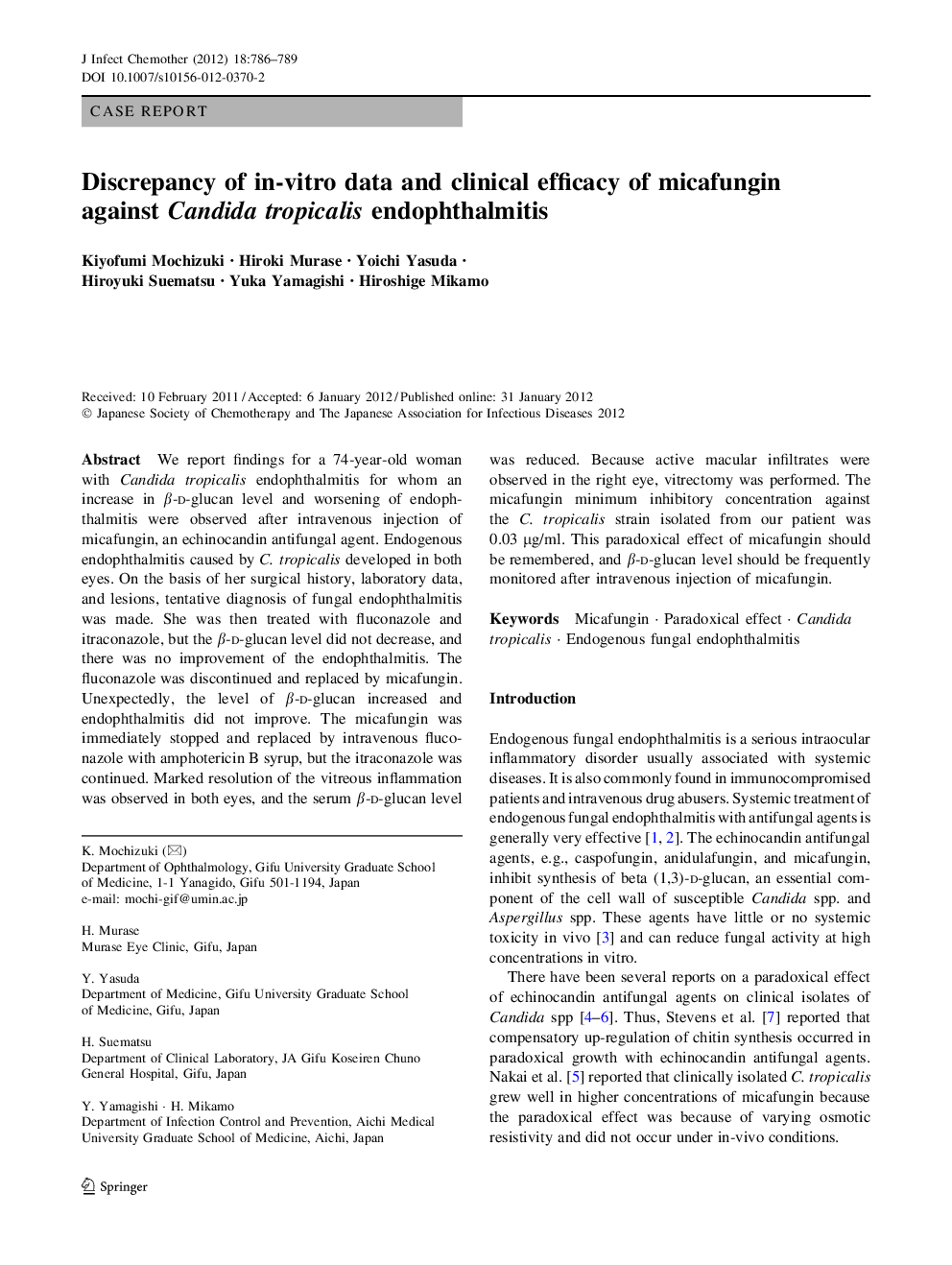| Article ID | Journal | Published Year | Pages | File Type |
|---|---|---|---|---|
| 6124126 | Journal of Infection and Chemotherapy | 2012 | 4 Pages |
Abstract
We report findings for a 74-year-old woman with Candida tropicalis endophthalmitis for whom an increase in β-d-glucan level and worsening of endophthalmitis were observed after intravenous injection of micafungin, an echinocandin antifungal agent. Endogenous endophthalmitis caused by C. tropicalis developed in both eyes. On the basis of her surgical history, laboratory data, and lesions, tentative diagnosis of fungal endophthalmitis was made. She was then treated with fluconazole and itraconazole, but the β-d-glucan level did not decrease, and there was no improvement of the endophthalmitis. The fluconazole was discontinued and replaced by micafungin. Unexpectedly, the level of β-d-glucan increased and endophthalmitis did not improve. The micafungin was immediately stopped and replaced by intravenous fluconazole with amphotericin B syrup, but the itraconazole was continued. Marked resolution of the vitreous inflammation was observed in both eyes, and the serum β-d-glucan level was reduced. Because active macular infiltrates were observed in the right eye, vitrectomy was performed. The micafungin minimum inhibitory concentration against the C. tropicalis strain isolated from our patient was 0.03 μg/ml. This paradoxical effect of micafungin should be remembered, and β-d-glucan level should be frequently monitored after intravenous injection of micafungin.
Related Topics
Life Sciences
Immunology and Microbiology
Applied Microbiology and Biotechnology
Authors
Kiyofumi Mochizuki, Hiroki Murase, Yoichi Yasuda, Hiroyuki Suematsu, Yuka Yamagishi, Hiroshige Mikamo,
